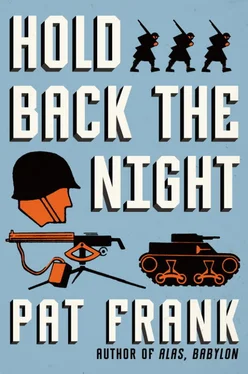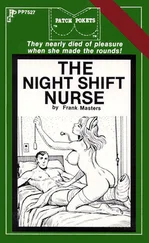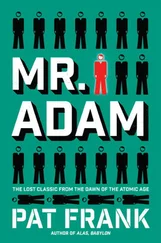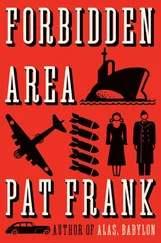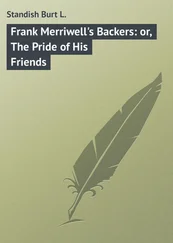With such a wound as this he had no experience. If no large artery was severed, he guessed the boy had a chance. If he could be got to an aid station, or a doctor—any kind of a doctor—even a Chinese doctor. And if he did not die from pain alone. Mackenzie had never heard of such a thing, but he thought that in this case it would be possible. From his musette bag the captain brought his first-aid kit, which he had supplemented from medical stores of his own choosing. In the kit were two morphine syrettes. After his experience on the Tenaru River, he had never been without them in the field. He ripped the plastic cap from the top of one of the tubes, exposing the sterile needle. He slammed the needle into Tinker’s arm, squeezing the tube flat.
The boy kept on screaming.
The captain ignored the sounds, but a few of the men turned away, white-faced. The captain dusted the wound with sulfa powder, and taped a dressing over it the best he could. Some of the men still watched in silence, but he sensed their nerves were going. He tried to force the penicillin capsules into Tinker’s mouth. It didn’t work. The boy couldn’t close his mouth to swallow, because of his pain.
In a taut voice, Ekland said, “Give him the other shot, captain.”
Mackenzie considered this. A half grain ought to be plenty. A half grain was enough for any man. All the morphine needed was a little time. It would work. It had to work. And in any case, there was only this one syrette left, and it might be needed later. Maybe Tinker would need it later, maybe somebody else, maybe even himself.
He thought of an alternative. He said to Ekland, “Hand me that bottle.” He couldn’t reach it himself. He was holding Tinker down.
“The bottle of Scotch?” said Ekland.
“Yes. The bottle of Scotch.”
Ekland found the leather case in the captain’s pocket, and pushed it into his hand.
“Tinker,” the captain said, bending low over the boy, “look at me. Look at me, I say! I’m going to give you a drink. I’m going to give you a big drink of Scotch whiskey and then you’ve got to swallow this penicillin.”
The men watched, wooden.
Tinker stopped making noises. He wet his lips with his tongue and said, “Sir, I don’t want whiskey. I want water.” He choked a little, and whimpered like a lost puppy and said, “I want my mother.”
The captain reached for one of the canteens thawing near the dwindling flame. “All right,” he told Tinker. “Water. One drink and then you swallow these.” He held out the pills.
The boy drank, and gulped the penicillin, and then the captain allowed him to wash it down with more water. Tinker was easier now, but his eyes were still desperate. “Captain,” he said, “you not going to leave me? You wouldn’t leave me, would you?”
“No,” the captain said gently. “We’re not going to leave you. Not now, or ever.” He brought out the cigarettes and counted them. “One to three men,” he said, “and Tinker can have one all to himself. Off your butts! Come on! Get going!”
Mackenzie trudged at the head of Dog Company, sharing his cigarette with Ekland and Beany Smith. Somewhere ahead he began to hear the thud and drum of cannon, and he knew it must be either the defenses of the perimeter—if there was a perimeter—or the guns of the fleet. The Chinese had no guns like that, nor would they spend ammunition so lavishly. It was encouraging, but the sound was far distant, and every fibre of him was tired. He realized that the ordeal with Tinker, now swinging quietly between four litter-bearers, had sapped his energy. It had dropped his vitality and reserves a full notch.
Beany Smith was aware that the captain was faltering. Back a few miles the Skipper had seemed fresh as any of them, but now Beany Smith knew he was fresher than the Skipper, and this frightened him. For the first time in his life Beany Smith had learned to depend on, and trust, somebody besides himself. He trusted the Skipper, even if the Skipper didn’t trust him.
Right from the first Beany Smith had hated Mackenzie, which was natural. Beany Smith hated authority, and the captain was authority. He began hating authority in his school, which was a very select school—selected for bastards, literal born-bastards, like himself. It was called an orphanage, and the papers referred to those at the school as “homeless waifs.” But he had known what the school was, and what he was, ever since he was six.
He ran off at fourteen, and was caught and sent back; and at fifteen he ran away twice again and was caught both times and returned, and he began to hate cops. At sixteen he knew enough of the world outside to make good an escape. He hitch-hiked to Memphis and got himself a job as a bag boy in a serve-yourself grocery store. After a year in the grocery he knew all the tricks, including those of the manager. For the first time he was eating well, but the manager and the company cops called it pilfering, and he was fired.
So he drifted with the seasons, picking apricots in California and apples in Oregon, and even oranges in Florida. He fell for a tired dance hall hostess in Chicago, and married her. She was something of a tramp. She spent her afternoons in the bedroom, reading the confession magazines littering her dressing table, and fixing her flaccid face. At night she’d usually be drunk. One night he looked behind the dirty cretonne skirts of the dressing table. That was where she cached her empty gin bottles.
He got himself a job selling mutuel tickets at Sportsman’s Park. When the racing season ended he hitchhiked to Reno and got a job as stickman at a dice table. It wasn’t true about his palming chips, but he was fired anyway, and the cops took him to the edge of town. Then they booted him.
So he went back to Memphis because in Memphis he knew a few people who’d buy him a meal, and give him a bed for a night or two. He was in trouble again soon enough. He snatched a car, although the technical charge was reduced to “joyriding.”
The judge asked his age and he said nineteen, although it was really twenty-two. That was smart. The judge gave him a choice—ninety days in the can or join the service. The Marines accepted him, after looking him over with tolerant care. His physical was good, and his mental test surprisingly high, and this seemed to have over-balanced his record, or what they knew of it.
This Skipper, this Old Man, had been rough on him, Smith thought, ever since they left the Stateside port of embarkation. But he’d got no more than he’d deserved. No phony raps. Mackenzie was rough, but square. Beany Smith sucked the last good from their cigarette, and said, “Captain, can I spell you with that musette bag, and the bottle?”
Mackenzie was startled. This was the first time that Beany Smith had ever volunteered for anything. The bottle, pulling at his pocket, had grown heavier, and the musette bag and carbine also seemed to be gaining weight. A man of thirty had already lost something. A march like this separated the men from the boys, and it was the boys, not the men, who could take it. “All right, Smith,” said the captain. “You can spell me.” He lowered his shoulder and slipped the strap of the bag, and he reached into his pocket and brought out the bottle and handed it to Private Smith. It was a surprising relief.
Beany Smith slung the bag over his shoulder, and cuddled the bottle under his arm, as the captain had in the early morning, when they started. And somehow he felt stronger. He felt he could carry the bag, and the bottle, forever. The Skipper had trusted him. The Skipper had made him part of something. He was part of Dog Company. He no longer hated the Skipper, or feared him, or was jealous or envious of him. “Captain,” said Beany Smith, “the girl who gave you this bottle—she’s your wife now, isn’t she?”
Читать дальше
